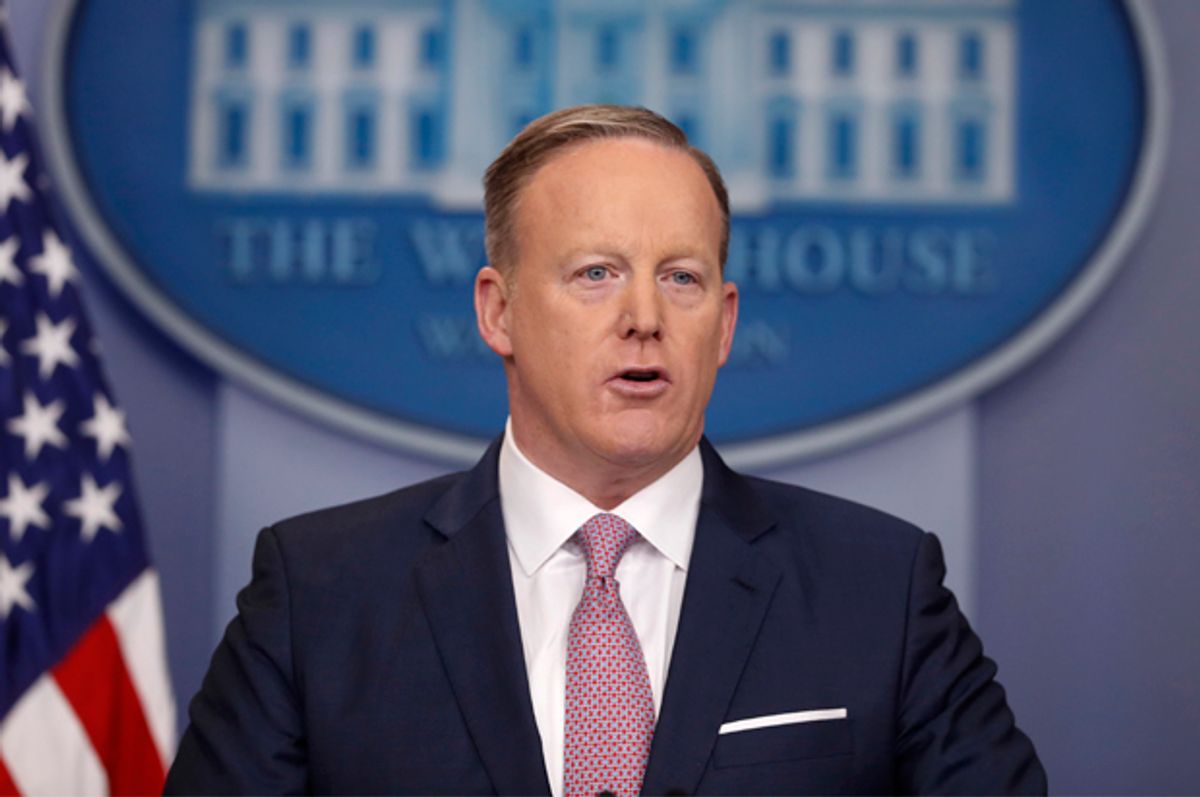Newly named White House House Press Secretary Sean Spicer held his first conventional press briefing on Monday to a packed room of reporters.
Billed as the "first official" press briefing of the new administration, the conference followed a bizarre episode that took place over the weekend, when Spicer christened the James S. Brady Press Briefing Room by delivering a prepared statement that admonished the media for reporting on President Donald Trump's inauguration attendance. On Monday, Spicer was able to expand on the obsession with crowd sizes, as well as provide insight into early policy considerations.
Spicer said the rationale for the Trump administration's "running war" with the media was due to efforts by the press to undercut the president's "enormous support." Spicer admitted that the negative press coverage had been "a little demoralizing." He suggested that reporting thus far has gone beyond objective journalism, saying that there was a "constant attempt to undermine [Trump's] credibility and the movement he represents."
Spicer cited the times the media expressed doubt in Trump's campaign as examples of how the press were treating the president unfairly. But the press secretary seemed to be conflating the media's underestimation of Trump with their stringent fact checking on him.
.@seanspicer is now equating fact checking admin's false statements with underestimating Trump. They are not the same.
— Jim Sciutto (@jimsciutto) January 23, 2017
Spicer did eventually concede that Trump's crowd size in the mall for his inauguration did not surpass former President Barack Obama's totals in 2009.
The questions at the press briefing did not limit themselves to crowd sizes, however, as Spicer was asked a range of questions facing Trump's presidency.
Spicer said that the executive order announcing the administration's withdrawal from the Trans-Pacific Partnership was largely symbolic because Congress had not yet approved the trade agreement. He said the order should usher "a new era of trade policy" in which Trump will pursue bilateral trade agreements.
As far as foreign security interests, Spicer received questions related to Trump's comments in Langley, Virginia Saturday when he hinted to the CIA that the U.S. may get another chance of removing the oil in Iraq. Spicer would not commit to any guarantees when it came to international relations in the Middle East, but he did say that Trump's military decisions would be based on "doing something that either protects America or is in our economic interest." Spicer also fielded a question on ISIS and the war in Syria.
Spicer is asked whether Trump is willing to work with Assad to fight ISIS. Spicer doesn't answer. — Ben Jacobs (@Bencjacobs) January 23, 2017
When asked about the Dakota Access Pipeline, Spicer indicated Trump would revisit the plan and likely would support its continued construction so that the U.S. "maximizes" its natural resources "for economic benefit."
The most substantial revelation from the briefing was Spicer's claim that Trump would not impede any investigations into possible connections with his campaign and Russia. The new press secretary again criticized Democrats for stalling Trump's Cabinet confirmations, as nominees such as Rex Tillerson and Mike Pompeo had not yet received a vote in the Senate.

Shares